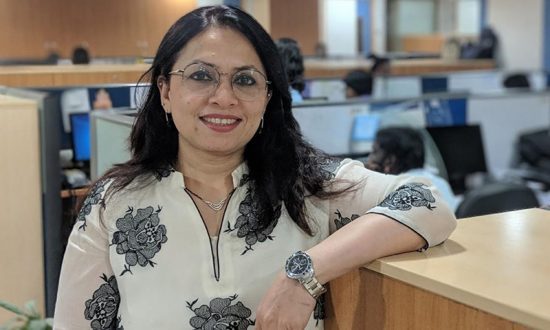Neeti has over 27 years of diverse experience in the domain of Outsourcing including Employment & Employability, Customer Relationship, Operations, Technical Training, Profit Center Management and International Business Development. Current focus is to set up a self-sustaining Employability and Employment models with various network of centers that profile, assess, train and certify job seekers across all profiles and cities / towns linking various stakeholders like Government, Educational Institutes, NGOs and Training Centers to cater to the manpower requirements (entry and middle level) of the organized and unorganized corporate sectors. Neeti has previously been associated with organizations such as Aptech Limited, Mittal Group of Companies & Goodearth Organics. She holds a Masters in Economics & Statistics and a Masters in Marketing Management from Symbiosis Institute of Management.
The world of work is changing and so are workplace skills. We are already seeing that technology/machine/robots are replacing many jobs, but at the same time newer jobs are being created, thereby increasing the need for new skills. Employees needs to keep upskilling, reskilling and learning continuously, no matter at what stage of your career they are at in order to remain relevant and in demand. Employees need to remain agile, adapt to change quickly and be prepared for any role that is given to them. Lifelong learning will help you stay relevant and employed. A lifelong learner will be able to focus on learning continuously, learn skills that are in demand today and will be in demand tomorrow and be future-ready.
Today, learning is for everyone. Traditionally, we have heard that learning is only for children and adults seeking to gain employment, however, that is not enough now. A lifelong learner has to learn, do, unlearn, learn do, rest, learn, do, unlearn and continue to repeat this cycle continuously. A growth mindset invites better possibilities for the future of the employees.
In order to keep learning and flourish at your workplace, follow these best practices:
- Take charge of your own development – Employees today need to stay abreast with the changes that are taking place around them, changes in technology, processes and much more. While creating a culture of Lifelong learning is not just the employees’ responsibility, the employer shares the same and has to focus on enabling learning for it’s employees, the employees should chalk a clear learning goal, identify the right skills & certifications, skills training providers and measure their progress. Employees should also take help from mentors & coaches who can guide and help them on their learning journey.
- Set goals and Measure them – Setting goals requires you to think about what you want to achieve and how do you get there. Goals will help you to make an action plan and find an effective way of reaching your goals. Remember goals have to Specific, Measurable, Relevant and Time-bound.
- Multi-skills is the way forward – Organizations today are seeking employees that can perform multiple roles and enhance their productivity. A multi-skilled employee is able to adapt to changing market demands. The breadth of skills is now becoming equally important as the depth of skills.
- Move out of your comfort zone – As they say, adapt or die. This is more relevant now than ever before. We cannot keep saying that we are good at “A” skill and cannot think of doing any other role. Leaving your comfort zone is not easy, but you need to push yourself and try learning new skills always
- Do what you like and like what you do – We spend over 50% of our waking hours at our workplace, so we really need to enjoy what we are doing. It has a major impact on our lives, health and overall well-being. A job that you love will give you additional motivation, make you more productive and aid you towards success
- Build a Growth Mindset – Dr. Carol Dweck in her book “Mindset: The New Psychology of Success” states that a growth mindset embraces challenges and views failures not as evidence of unintelligence but as a heartening springboard for growth and for stretching our existing abilities. A growth mindset embraces challenges, change and critique on the way to learning goals. In order to build a growth mindset, you need to reflect on your successes & failures, ask for feedback and act upon it, enjoy the journey and take on challenges head-on and deal with them.
We need to generate awareness and learn various aspects throughout our lives. Whether it is by enrolling on an education program or learning a skill, continuous learning has to be an integral part of our lives. Along with classroom & digital learning, one needs to learn On the Job as well. We need to upgrade our competencies and aptitude in terms of various aspects that may enable us to perform well at our workplaces.
Lifelong learning plays a key role in the overall goal of improving societal, individual and professional well-being. Lifelong learning is based on a few basic elements such as continuity, creativity and learning how to learn. Basic skills needed for Lifelong learning are managing oneself, communication and adaptation to changes.
Lifelong learning can be quite fulfilling. Whether you develop a new skill, a new sport or learn new technology, it can alter your life and offer many long term benefits such as increased motivation, higher self-confidence, improved mental health, staying relevant and making you more employable.




